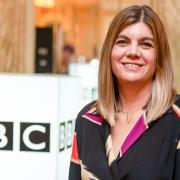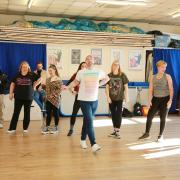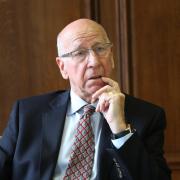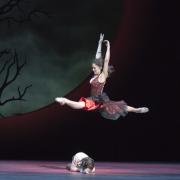Mother, lawyer, diversity champion Sally Penni on why all families are not the same
“Not all little girls have long blonde hair and big blue eyes and not all families have a mum, a dad and 2.4 children”
We all reacted to lockdown in different ways. For some, it was a time to discover their inner baker – if they could find any flour. For others, Zoom quizzes and virtual cocktail sessions became the new normal. Neighbourhoods banded together like never before, shopping for the vulnerable, giving away last year’s bikes to keep frustrated kids moving and even, on our street, playing a classical music recital.
Two Anne Frank quotes came to mind at this time: “You can always give something, even if it’s only kindness” and, “In spite of everything I still believe that people are really good at heart”.
For the most part, lockdown brought out the best in communities. In the early days, some feared that people, facing a new kind of threat, would turn on each other. But this dystopian vision quickly faded as neighbours deepened connections and residential streets, roads and avenues thrummed with the gentle sound of a slower, simpler, more connected life.
It was during this time that I started writing a book with my six-year-old daughter Maddie. Homeschooling, alongside working from home as a barrister, was no walk in the park. My three children, aged six to 10, were understandably demoralised, particularly my youngest, who greatly missed the buzz of the classroom.
As an extra project, we decided to publish a book about what was important to Maddie – her love of magical unicorns being the natural starting point. As we talked and wrote, two important – and as it turned out, highly topical themes started to emerge: the importance of cohesive communities and the power of diverse and inclusive role models. Diversity is about more than skin colour – it takes in gender, age, sexuality, political or religious beliefs, ethnicity, socio-economic status, disability and neurodiversity.
In the story, titled Rosie the Unicorn, the eponymous heroine wakes one morning to find a rainbow unicorn outside her bedroom window. The pair fly around her village, meeting local people from all over the world.
Rosie tells the unicorn that there are many kinds of different families, some children have two dads and some have none, they have different religions, different accents and many varying colours of skin. Rosie tells the unicorn that everyone gets on and looks out for each other.
It’s a simple message, but in these challenging times, a crucial one. Black Lives Matters exploded across the globe just as the book was being published – and now South Asian communities are facing coronavirus scapegoating.
As a massive fan of children’s fiction, I can see that Goldilocks still stands the test of time– although as a lawyer I can’t help but notice some issues around burglary and trespass... But it is so important for my dual-heritage children, and in fact for all young people, to see picture-book characters who represent the globalised and diverse world we live in. Not all little girls have long blonde hair and big blue eyes and not all families have a mum, a dad and 2.4 children. Community cohesion begins at home.
Sally Penni is a barrister, public speaker, fundraiser, author, NED, host of the Talking Law podcast, founder of networking and personal development organisation Women In The Law UK and mother of three. Her children’s book, Rosie and the Unicorn, is available on Amazon. On Twitter she is @sallypenni




























